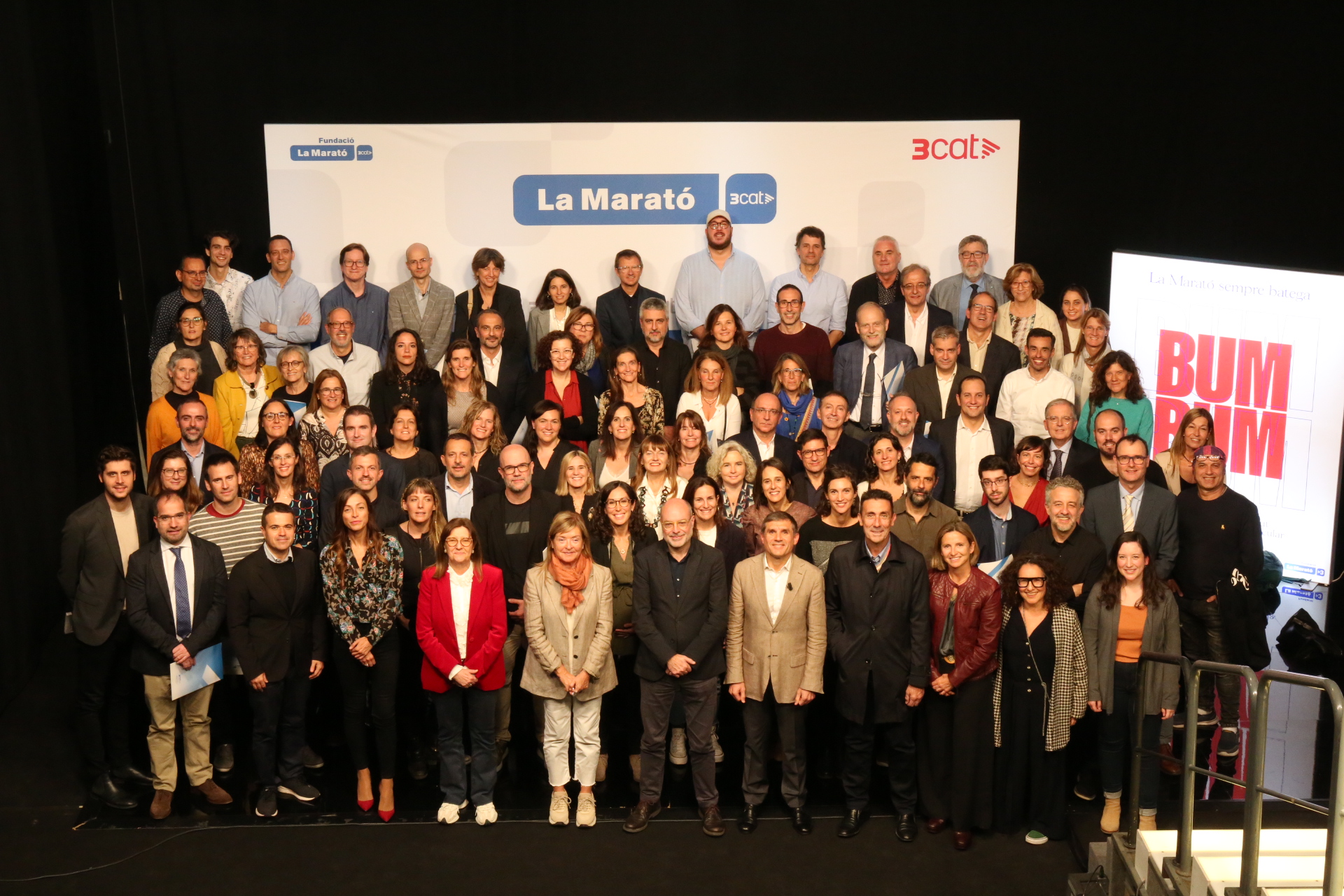GCAT takes part in one of the projects funded by Fundació La Marató de 3Cat

Photo: The 71 awarded teams received their awards at an event held on 8 November at the 3Cat studio (source: www.ccma.cat)
The funds raised in the 2022 edition of La Marató de 3Cat will enable 71 research teams to conduct 37 projects in cardiovascular health to advance in the prevention, diagnosis, and treatment of diseases that represent the leading cause of death in developed countries. One of the awarded projects involves the participation of researchers from the GCAT|Genomes for Life project at the Germans Trias i Pujol Research Institute (IGTP), led by Dr Rafael de Cid: Decrypting the link between chrono-nutrition and cardiometabolic disorders from an epigenetic perspective, which has received €299,933.87. The project is coordinated by Dr Camille Lassale from the Barcelona Institute for Global Health (ISGlobal), a center supported by the "la Caixa" Foundation. The aim of this coordinated project is to comprehensively describe these behaviours in the adult population cohort of Catalonia GCAT and relate them to the cardiovascular health of the participants. This is the first large-scale prospective study to describe chrono-nutritional and other circadian behaviours and their effect on epigenetic modification od DNA.
Circadian rhythms, from the Latin 'circa diem' meaning 'about a day', are the biological processes that exhibit a 24-hour oscillation, governing the physiological and behavioural functions of the body. These rhythms are coordinated by our "internal clock," which is genetically programmed but also influenced by external factors such as light (the day/night cycle), food intake, and physical activity. It has been demonstrated that disruptions in circadian rhythms linked to the activities of a 24-hour modern society, such as night work, late eating, or reduced sleep, can increase the risk of cardiometabolic diseases like obesity, diabetes, or cardiovascular diseases. However, many aspects of circadian behaviours, particularly those related to food, need to be considered comprehensively to better understand their impact on health. These fall under the new term 'chrono-nutrition', which has gained significant attention in recent years, but solid studies are lacking to inform when the best time of day is for eating for our health.
This project aims to generate new evidence to inform public health recommendations on chrono-nutrition. Additionally, studies are needed to better understand the molecular mechanisms that explain these associations. One possible hypothesis is that circadian rhythm disruptions have an effect on epigenetics, i.e., how genes are expressed, particularly in a mechanism that can control gene expression without affecting genetic information, called DNA methylation. This project will study how this is related to cardiovascular health: if the identified circadian epigenetic markers are associated with differences in the risk of cardiometabolic diseases, this would indicate a possible mediating effect of methylation in the role of nutritional circadian misalignment in these diseases.
37 Projects on Cardiovascular Health
The €11.2 million raised in the 2022 edition of La Marató has not only funded excellent scientific research, but it has also raised awareness among the public about cardiovascular diseases, with a significant impact on people's quality and life expectancy. They are the leading cause of death and hospital admissions in developed countries. In Catalonia alone, 45 people die every day, two every hour, due to a health problem in this field. The 71 research teams awarded by the Foundation will work over the next 3 years to find answers in the field of cardiovascular health. Of the total projects selected, 15 are individual projects, and 22 are collaborations between two or more research institutions. In 31 years of existence, La Marató has funded a total of 1,022 research projects, driven by 1,710 top-tier teams, involving 9,958 male and female researchers, providing essential advancements for the improvement of society's overall health.
